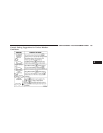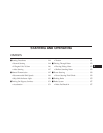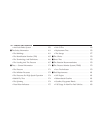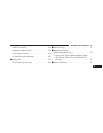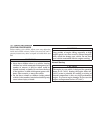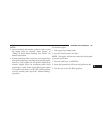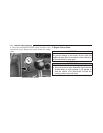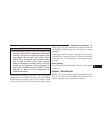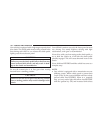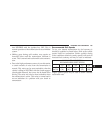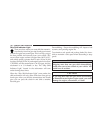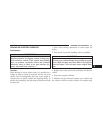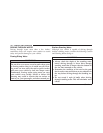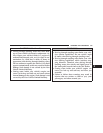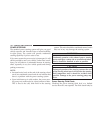
WARNING! (Continued)
•
Do not attempt to push or tow your vehicle to get
it started. Unburned fuel could enter the catalytic
converter and once the engine has started, ignite
and damage the converter and vehicle. If the
vehicle has a discharged battery, booster cables
may be used to obtain a start from a booster
battery or the battery in another vehicle. This type
of start can be dangerous if done improperly, so
follow this procedure carefully. Refer to “Jump
Starting” in “What To Do In Emergencies” for
further information.
If the engine is flooded, it may start to run, but not have
enough power to continue running when the ENGINE
START button is released. If this occurs, continue crank-
ing up to 15 seconds with the accelerator pedal pushed
all the way to the floor. Release the accelerator pedal and
the ENGINE START button once the engine is running
smoothly.
If the engine shows no sign of starting after two 15 sec-
ond periods of cranking with the accelerator pedal held
to the floor, the “Normal Starting” procedure should be
repeated.
After Starting
The idle speed will automatically decrease as the engine
warms up.
MANUAL TRANSMISSION
NOTE: The parking brake should be engaged and the
shift lever placed into REVERSE before leaving the
vehicle, especially when parked on an incline.
5
STARTING AND OPERATING 147



